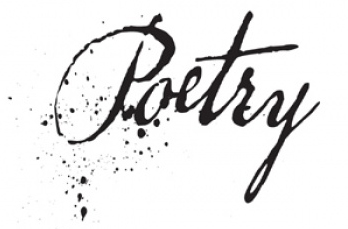Teen Poetry Workshop: Poems
Friday, April 17th, 2020
A few months ago, Youth Services Librarian and friend Susan Monroe, of the Emmaus Public Library, invited me to conduct a teen poetry workshop at the library on Saturday, April 18, 2020. Of course, our plans went awry, thanks to the COVID-19 pandemic and the state of Pennsylvania’s standing stay-at-home order. More recently, Sue asked me if I’d be willing to do the workshop as a video, and I said sure. Of course, the session would be very different. Instead of doing an introduction and then working with students on their own writing, I put together some tips about poetry, along with lots of examples of poems that illustrate those tips.
The video is now live here: https://www.facebook.com/emmauspl.org/videos/583554289175965/
I’d still be happy to offer a critique of poems for anyone who’d like my feedback. You can email them to me at shantipoet@gmail.com.
For some fun poetry prompts, go to Wild Violet’s poetry section. Throughout the month of April, we’re sharing daily prompts. In addition, I mentioned a couple useful sites to visit while writing or revising: Thesaurus.com and RhymeZone.com.
Below are the poems I read as part of my video workshop, along with the topic they were illustrating.
~~~
Alliteration
Repose of Rivers
By Hart Crane
The willows carried a slow sound,
A sarabande the wind mowed on the mead.
I could never remember
That seething, steady leveling of the marshes
Till age had brought me to the sea.
Flags, weeds. And remembrance of steep alcoves
Where cypresses shared the noon’s
Tyranny; they drew me into hades almost
And mammoth turtles climbing sulphur dreams
Yielded, white sun-silt rippled them
Asunder. . .
How much I would have bartered! The black gorge
And all the singular nestings in the hills
Where beavers learn stitch and tooth.
The pond I entered once and quickly fled —
I remember now its singing willow rim.
And finally, in that memory all things nurse;
After the city that I finally passed
With scalding unguents spread and smoking darts
The monsoon cut across the delta
At gulf gates. . . There, beyond the dykes
I heard wind flaking sapphire, like this summer,
And willows could not hold more steady sound.
~~~
Simile and Metaphor
Solitude
By Charles Simic
There now, where the first crumb
Falls from the table
You think no one hears it
As it hits the floor
But somewhere already
The ants are putting on
Their Quakers’ hats
And setting out to visit you.
~~~
Conciseness
Singing Image of Fire
By Kukai
A hand moves, and the fire’s whirling takes different shapes,
triangles, squares: all things change when we do.
The first word, Ah, blossomed into all others.
Each of them is true.
~~~
Precise Detail
Coal Train
By Jay Parini
There times a night it woke you
in middle summer, the Erie Lackawanna,
running to the north on thin, loud rails.
You could feel it coming a long way off:
at first, a tremble in youru belly,
a wire trilling in your veins, then diesel
rising to a froth beneath your skin.
You could see the cowcatcher,
wide as a mouth and eating ties,
the headlight blowing a dust of flies.
There was no way to stop it.
You lay there, fastened to the tracks
and waiting, breathing like a bull,
Your fingers lit at the tips like matches.
You waited for the thunder of wheel and bone,
the axles sparking, fire in your spine.
Each passing was a kind of death,
the whistle dwindling to a ghost in air,
the engine losing itself in trees.
In a while, your heart was the loudest thing,
your bed was a pool of night.
~~~
Poetic Form
Will Not Come Back [Volveran]
By Robert Lowell
(a sonnet)
Dark swallows will doubtless come back killing
the injudicious nightflies with a clack of the beak;
but those that stopped full flight to see your beauty
and my good fortune… as if they knew our names —
they’ll not come back. The thick lemony honeysuckle,
climbing from the earthroot to your window,
will open more beautiful blossoms to the evening;
but these… like dewdrops, trembling, shining, falling,
the tears of day — they’ll not come back…
Some other love will sound his foreword for you
And wake your heart, perhaps, from its cool sleep;
But silent, absorbed, and on his knees,
As men adore God at the altar, as I love you —
don’t blind yourself, you’ll not be loved like that.
~~~
Inspired by Everyday Life
Flash Cards
By Rita Dove
In math I was the whiz kid, keeper
Of oranges and apples. What you don’t understand,
master, my father said; the faster
I answered, the faster they came.
I could see one bud on the teacher’s geranium,
one clear bee sputtering at the wet pane.
The tulip trees always dragged after heavy rain
so I tucked my head as my boots slapped home.
My father put up his feet after work
and relaxed with a highball and The Life of Lincoln.
After supper we drilled and I climbed the dark
before sleep, before a thin voice hissed
numbers as I spun on a wheel. I had to guess.
Ten, I kept saying, I’m only ten.
~~~
Inspired by History or the News
Rosa
By Rita Dove
How she sat there,
the time right inside a place
so wrong it was ready.
That trim name with
its dream of a bench
to rest on. Her sensible coat.
Doing nothing was the doing:
the clean flame of her gaze
carved by a camera flash.
How she stood up
when they bent down to retrieve
her purse. That courtesy.
~~~
Inspired by Observations
A Moment
By Ruth Stone
Across the highway a heron stands
in the flooded field. It stands
as if lost in thought, on one leg, careless,
as if the field belongs to herons.
The air is clear and quiet.
Snowmelt on this second fair day.
Mother and daughter,
we sit in the parking lot
with doughnuts and coffee.
We are silent.
For a moment the wall between us
opens to the universe,
then closes.
And you go on saying
you do not want to repeat my life.
~~~
Inspired by Nature
Aviatrix
By Diane Ackerman
In dawn’s feathered light,
a lady cardinal hurls herself
against my bedroom window.
Hallucinations stalk the glass
as she slams her softness
into a flat, cold world,
Trying to perch on a limb
perfect in the sunlight,
but it will not hold her
skidding feet, her urgent thumping.
The hours are long panes
of glass she cannot enter.
love wings through
another world without her.
Tomorrow, it will begin again,
only louder, the frantic pounding
of her feathery will.
The grinding down of her notes,
one by one, in the glare of her reflection,
where loneliness stuns her.
~~~
Inspired by Art
Musée des Beaux Arts
By W. H. Auden
About suffering they were never wrong,
The Old Masters: how well they understood
Its human position; how it takes place
While someone else is eating or opening a window or just walking dully along;
How, when the aged are reverently, passionately waiting
For the miraculous birth, there always must be
Children who did not specially want it to happen, skating
On a pond at the edge of the wood:
They never forgot
That even the dreadful martyrdom must run its course
Anyhow in a corner, some untidy spot
Where the dogs go on with their doggy life and the torturer’s horse
Scratches its innocent behind on a tree.
In Brueghel’s Icarus, for instance: how everything turns away
Quite leisurely from the disaster; the plowman may
Have heard the splash, the forsaken cry,
But for him it was not an important failure; the sun shone
As it had to on the white legs disappearing into the green
Water; and the expensive delicate ship that must have seen
Something amazing, a boy falling out of the sky,
Had somewhere to get to and sailed calmly on.
~~~
Inspired by Dreams
The Song in the Dream
By Saskia Hamilton
The song itself had hinges. The clasp on the eighteen-century Bible
had hinges, which creaked; when you released the catch,
the book would sigh and expand.
The song was of two wholes joined by hinges,
and I was worried about the joining, the spaces in between
the joints, the weight of each side straining them.
~~~
The Writing Process
Advice to Young Writers
Ron Padgett
One of the things I’ve repeated to writing
students is that they should write when they don’t
feel like writing, just sit down and start,
and when it doesn’t go very well, to press on then,
to get to that one thing you’d otherwise
never find. What I forgot to mention was
that this is just a writing technique, that
you could also be out mowing the lawn, where,
if you bring your mind to it, you’ll also eventually
come to something unexpected (“The robin he
hunts and pecks”), or watching the FARM NEWS
on which a large a man is referring to the “Great
Massachusetts area.” It’s alright, students, not
to write. Do whatever you want. As long as you find
that unexpected something, or even if you don’t.
~~~
Point-of-View
Song of the Seeing Eye Dog
by Alyce Wilson
(from Picturebook of the Martyrs)
I nose the curbed air. My woman
bends to touch me. I have licked that salty
trust. Her scent of orchid and mushroom
I know. And her feet by their rusty fall.
She wraps her fingers in my hair,
could find me in a brood of howls.
When the steel and plastic hushes
I uncrouch to tell her
Sister and we go.
~~~
Revision
What Rhymes with Orange?
(version 1)
By Alyce Wilson
I peel it in a spiral, juicy: segments
like motorcycle spokes. Sun-blaze,
sweet citrus, fruit. Peel,
appeal. Pregnant, belly. Baby.
Pacifier, blossoms. White
blossoms. Lacy. Orange smiles
at soccer practice, as snacks.
Spiral.
*
What Rhymes with Orange?
(version 3)
By Alyce Wilson
I peel it in a spiral, juicy segments
like spokes. Sun-blaze sweet
citrus of summertime. Opulent,
round Christmas stocking gift. Like pregnant
bellies. A baby with a pacifier blossoms
from white lace. This nectar, distilled
into its essence, will purify sin. So many
foolish decisions collect in litany.
I need atonement. Praise be this beatitude, this
answer to orisons. Nothing
but a citron benediction. Titian rind,
once removed, becomes amen.





